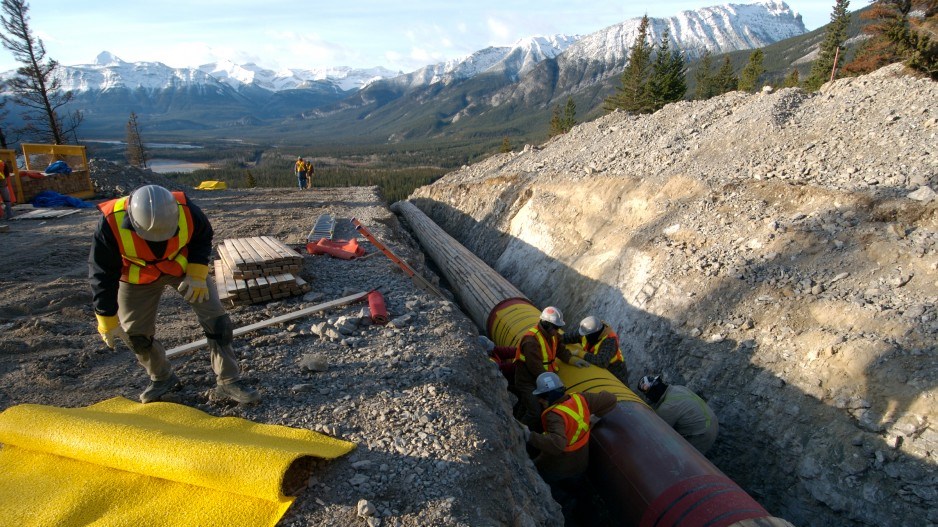When the Trudeau government announced last year it would buy the Trans Mountain pipeline from Kinder Morgan Canada (TSX:KML) for $4.5 billion, Conservative MP Gérard Deltell said the government was paying $2 billion more than it was worth.
Royal Bank analysts also calculated the government paid $1.2 billion more than it was worth.
Pipeline opponents, including federal New Democrat Leader Jagmeet Singh, have run with the theme that Ottawa overpaid for “a leaky, 65-year-old pipeline.”
But Ottawa’s Parliamentary Budget Officer released a valuation today, January 31 that puts the value of the existing pipeline and Trans Mountain Pipeline Expansion Project (TMEP) at between $3.6 billion and $4.6 billion.
So Ottawa either paid $1 billion more than it's actually worth, or $100 million more.
Whether Ottawa spent too much really depends on whether the expansion project goes ahead as planned, and how much the cost of construction rises. Delays essentially reduce its value. So the longer the expansion is delayed, the less value this asset will have for the Canadian taxpayers who now own it.
The PBO came up with the two valuations using two different kinds of analyses. One was based on a comparison to other comparable pipelines, a PBO analyst explained.
The lower number of $3.6 billion was based on discounted cash flows that result from risk and the associated higher cost of capital.
The more risk a project has, the higher borrowing costs become, and clearly there is a high degree of risk associated with any pipeline project in Canada.
A simpler way of putting it is that, if the expansion were to go ahead as planned, then Ottawa paid a premium of about $100 million, but if it’s delayed, the value of the project goes down and Ottawa will have paid $1 billion more than what it’s worth.
It is worth noting that the PBO’s valuation did not include some of the hard assets that Ottawa acquired along with the Trans Mountain pipeline. The Puget Sound pipeline, which goes into Washington State, and “multiple pipeline terminals” were not included in the valuation.
“Therefore, the PBO’s valuation would be understated relative to the total value of all the assets bought as part of the purchase,” the report’s executive summary states.
When Ottawa bought the existing Trans Mountain pipeline, it also acquired the TMEP expansion project. More than $900 million was already spent on the TMEP.
The true value of the project lies not so much the existing pipeline, but the revenue and general economic activity that an expansion would bring. That expansion was originally estimated to cost $7.4 billion. It’s now expected to cost $9.3 billion.
A delay of one year in completing the expansion will decrease the value of the TMEP by $693 million, the PBO calculates.
Should the Trudeau government ever manage to get the expansion on track, the PBO report calculates the expansion would increase Canada’s real GDP by 0.11% in 2020, with peak employment of 7,900 workers in 2020.
And if the expansion reduces the discount that is currently on Albert oil – due to pipeline constraints – by US$5 per barrel, it would add 0.1% to Canada’s real GDP.
“This would translate into a $6 billion annual impact on GDP during the five year period from 2019 to 2023,” PBO report states.




